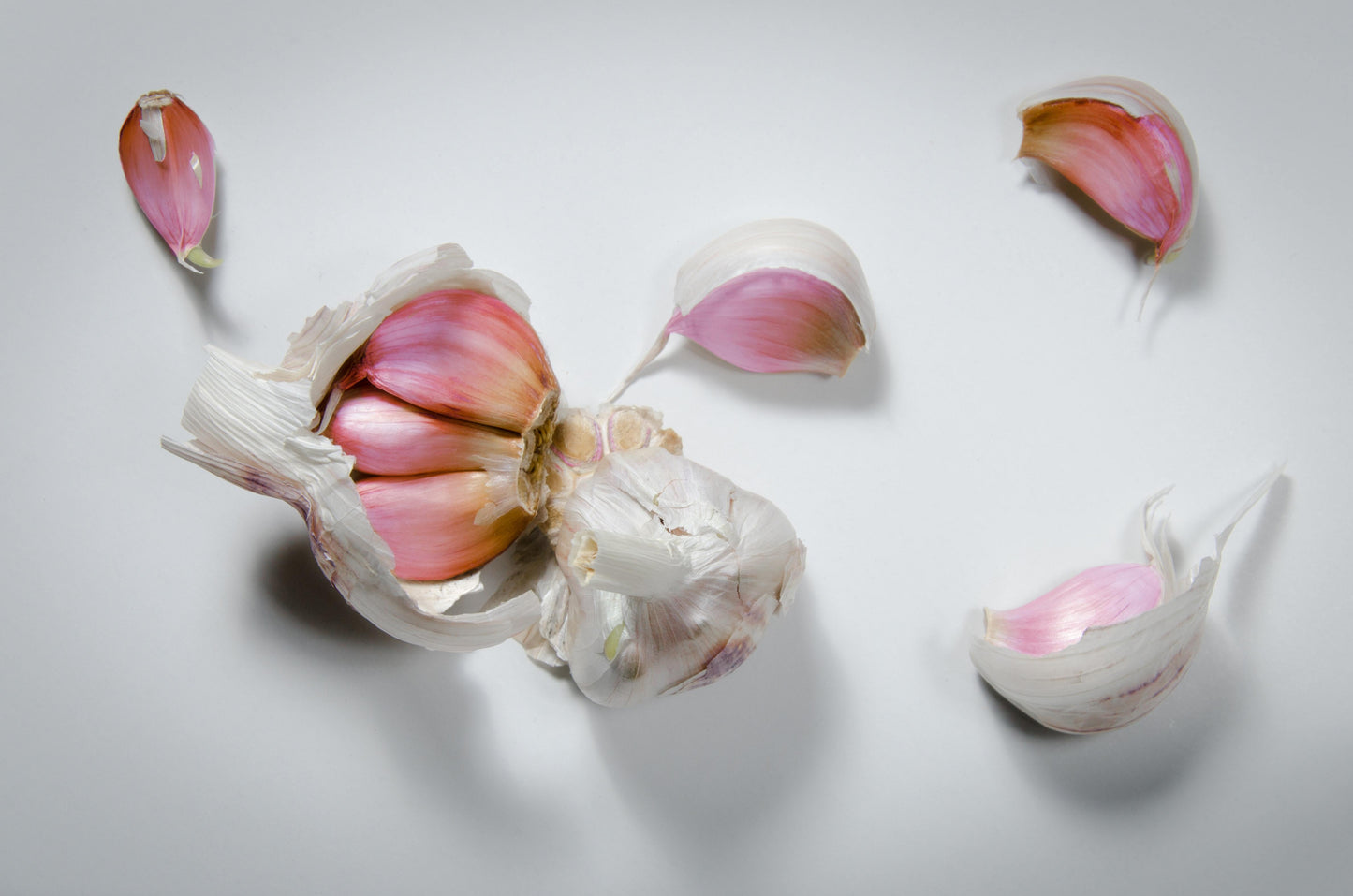
Garlic is good for you in so many ways that it is a pity if you have been put off it by the smell of it on another person’s breath. It should be used sparingly. Three cloves are usually enough in a dish, although some French dishes call for whole heads or bulbs of garlic to be roasted. If you roast garlic it can be a good vegetable accompaniment to a main dish. To take the smell away from your mouth, eat fresh parsley.
Garlic in the ancient world
Garlic has been used for centuries and probably originated in Asia, but today it is grown and used throughout the world. It is easy to grow from a clove too; simply put one clove in a pot or plant some in your garden. The Romans believed that it gave soldiers courage, so it was planted in the countries they conquered. There is some archaeological evidence which shows that the slaves who built the pyramids in Egypt were given raw garlic as part of their daily rations.

Garlic and superstitions
In Europe garlic was thought to protect people from the evil eye; in some countries, including Italy, concerned parents would hang garlic around their children’s necks necklaces for protection. In Central Europe it was believed that garlic would keep vampires at bay.

Uses of garlic in the past
There is an old Welsh rhyme which says:”Eat leeks in April and garlic in May, then all the year the doctors will play.” The ancient Physicians of Myddfai (800 -1800 approximately) in mid-Wales, believed that you should boil garlic in milk and water and drink it to stop a nosebleed.
In the early 18th century French gravediggers would drink wine which contained garlic in the belief that it would protect them from the plague. During World War I garlic juice was used as an antiseptic, and is good to put on wounds. It has been used as a home remedy for asthma and to cure a fit of hysterics, but there is little hard evidence that it has any effect on either.

Modern medicine and garlic
Today garlic is believed to help prevent the common cold, as medical trials have shown that people who took a garlic supplement had fewer colds than the control group which didn’t. There is also some medical evidence which suggests that garlic can lower blood pressure by 7 or 8 percent, and that it can thin the blood. If the blood is thinner there is less risk of blood clots. It seems that garlic can also prevent the onset of atherosclerosis thus helping to prevent heart diseases. Garlic also seems to boost the immune system and in test tubes it has anti-cancer activity. However its efficacy has yet to be shown in humans. A garlic-based gel also acts as a fungicide and can cure athlete’s foot and other skin problems.
Garlic has antioxidant properties and can help fight free-radicals which damage healthy cells and DNA. Many other herbs and vegetables also have these properties, but garlic has particularly potent ones. It can therefore help in our fight to prevent cancer, as well as helping our bodies and our skin stave off the ravages of old age.
If you really can’t bear the smell or taste of fresh garlic, then there are supplements which you can take instead. However, if you use fresh garlic in your cooking, the smell and taste blend in with the other ingredients. Eat parsley afterwards and you breath will not have the rather acrid smell of garlic on it. Remember too that people who have eaten garlic can’t smell it on other people. Fresh garlic is best for health so use it as often as possible.
Shop High Quality Allicin Plus Garlic Supplement here







